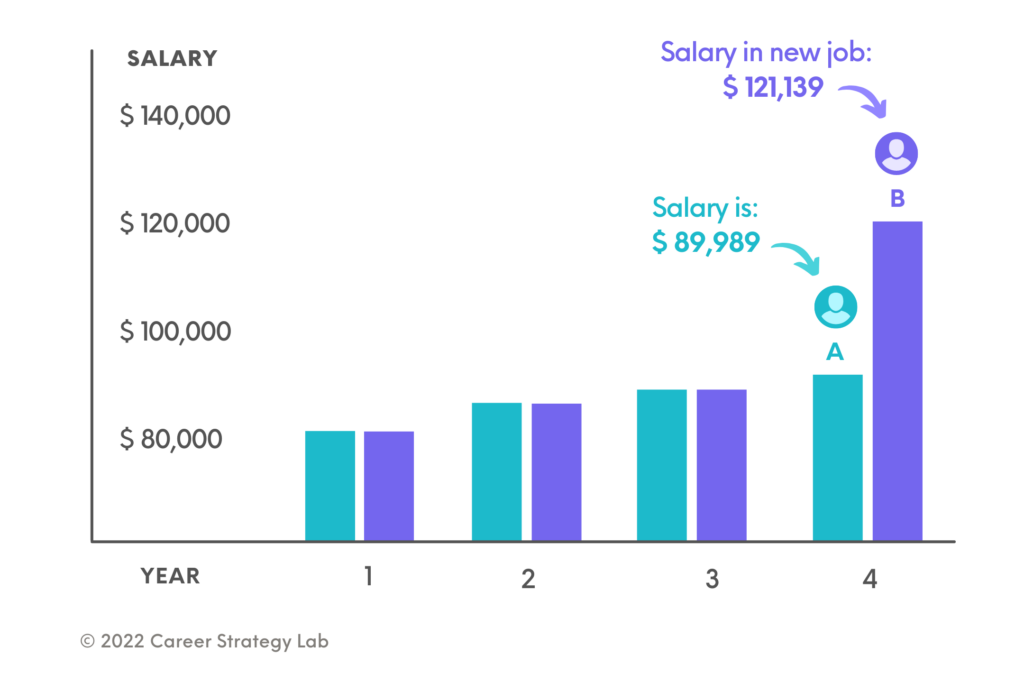Salary Too High For Current Job Market? Finding New Opportunities

Table of Contents
Re-evaluating Your Salary Expectations
Feeling your salary is too high for the market can be disheartening, but a realistic assessment is the first step towards finding the right opportunity. This involves a thorough examination of your current expectations against the realities of the job market.
Researching Current Market Rates
Understanding the current market value of your skills is crucial. Don't rely on outdated information or gut feelings. Instead, use reliable resources:
- Online Salary Calculators: Utilize websites like Glassdoor, Salary.com, Payscale, and LinkedIn Salary to benchmark your salary against similar roles in your geographic location. Specify your experience level, skills, and industry for accurate results.
- Networking: Tap into your professional network. Reach out to colleagues, former classmates, and mentors in your field. Informal conversations can provide valuable insights into real-world compensation packages and current market trends. Networking can also uncover hidden job opportunities.
- Total Compensation: Don't focus solely on base salary. Analyze your complete compensation package, factoring in benefits (health insurance, retirement plans, paid time off), bonuses, stock options, and other perks. This holistic view provides a clearer picture of your overall earning potential.
Understanding the Factors Influencing Salary
Several factors significantly impact salary expectations. Understanding these helps you calibrate your expectations:
- Experience Level: Entry-level positions naturally command lower salaries than those requiring years of experience and expertise.
- Location: Salaries vary significantly by geographic location due to cost of living, local market demand, and industry concentration. A high-paying role in a high cost of living area may actually have lower real earning potential than a lower-paying role in a lower cost of living area.
- Company Size: Larger corporations often offer more competitive compensation packages compared to smaller startups or non-profits.
- Industry Demand: High-demand skills and industries tend to offer higher salaries due to the competition for talent. Identify high-demand skills in your area and consider upskilling or reskilling.
- Specific Skills: Specialized skills, such as proficiency in specific software or technologies, significantly impact earning potential. Highlight your unique and in-demand skills in your applications.
- Education Level: Advanced degrees (Masters, PhD) typically lead to higher salaries, particularly in specialized fields.
Targeting the Right Job Search Strategies
Once you've adjusted your salary expectations, you need a targeted job search strategy. This involves more than just submitting applications online.
Leveraging Your Network
Your professional network is an invaluable resource.
- Inform Your Contacts: Let your network know you're searching for a new role and the salary range you're targeting. They may have unadvertised opportunities.
- Industry Events: Attend conferences, workshops, and networking events in your field. These events offer opportunities to meet potential employers and learn about new opportunities.
- LinkedIn: Optimize your LinkedIn profile and actively engage with recruiters and professionals in your field. Join relevant groups and participate in conversations.
Optimizing Your Resume and Cover Letter
Your resume and cover letter are your marketing materials.
- Tailoring: Customize your resume and cover letter for each job application, highlighting the skills and experience most relevant to the specific role. Use keywords from the job description.
- Quantifying Accomplishments: Instead of simply listing your responsibilities, quantify your achievements. Use metrics and numbers to demonstrate your impact.
- Keyword Optimization: Incorporate relevant keywords from the job description into your resume and cover letter to improve your chances of getting noticed by Applicant Tracking Systems (ATS).
Exploring Untapped Job Markets
Don't limit yourself to the obvious job boards.
- Relocation: Consider relocating to areas with higher demand for your skills and higher average salaries.
- Niche Industries: Explore industries or sectors where your skills are highly valued, even if they're outside your usual area of focus.
- Freelancing/Contracting: Freelance or contract work can be a stepping stone to higher-paying roles and allows you to command higher rates based on your experience and expertise.
Negotiating Your Salary Effectively
Once you have an offer, effective negotiation is crucial.
Researching the Company and Role
Thorough research is essential.
- Company Finances: Investigate the company's financial health and recent performance. This helps you understand their capacity for offering competitive salaries.
- Internal Salary Ranges: Research salary ranges for similar roles within the company, if possible. This will help you anchor your negotiation.
Presenting Your Value Proposition
Focus on the value you bring.
- Highlight Accomplishments: Showcase your quantifiable achievements and contributions from past roles. Emphasize how these achievements benefit the new employer.
- Future Contributions: Explain how your skills and experience can help the company achieve its goals and improve its performance.
Knowing Your Bottom Line
Be prepared.
- Minimum Salary: Determine your minimum acceptable salary before entering negotiations.
- Negotiation Strategy: Develop a negotiation strategy based on your research and your desired outcome. Be prepared to justify your salary expectations.
Conclusion
Feeling your salary is too high for the current job market can be daunting, but it's not insurmountable. By re-evaluating your salary expectations, refining your job search strategies, and mastering salary negotiation, you can significantly improve your chances of finding a fulfilling and well-compensated role. Remember to leverage your network, optimize your application materials, and thoroughly research potential employers. Don't be afraid to explore new avenues and negotiate confidently. Take control of your career trajectory and find the perfect opportunity that values your skills and expertise. Start your search today – finding the right job that matches your salary expectations is achievable!

Featured Posts
-
 R1 45 Lakh Ultraviolette Tesseract Everything You Need To Know About This New Electric Scooter
May 17, 2025
R1 45 Lakh Ultraviolette Tesseract Everything You Need To Know About This New Electric Scooter
May 17, 2025 -
 Offre Limitee Trottinettes Electriques 200 E Chez Cdiscount
May 17, 2025
Offre Limitee Trottinettes Electriques 200 E Chez Cdiscount
May 17, 2025 -
 Ambassadors Announcement Chinas Willingness To Explore Formal Trade Deal With Canada
May 17, 2025
Ambassadors Announcement Chinas Willingness To Explore Formal Trade Deal With Canada
May 17, 2025 -
 New Fortnite Item Shop Feature What Players Need To Know
May 17, 2025
New Fortnite Item Shop Feature What Players Need To Know
May 17, 2025 -
 Tony Bennetts Collaborations A Celebration Of Musical Partnerships
May 17, 2025
Tony Bennetts Collaborations A Celebration Of Musical Partnerships
May 17, 2025
